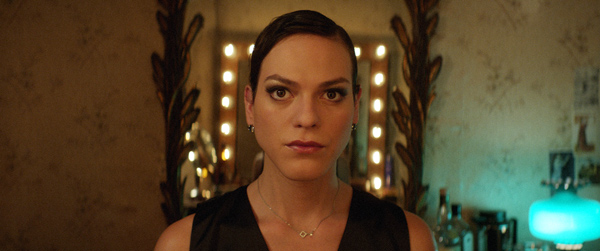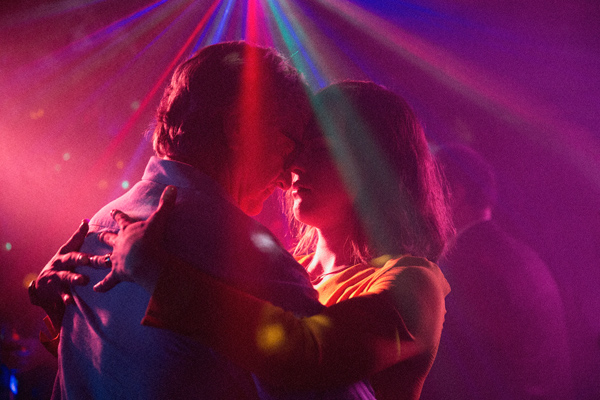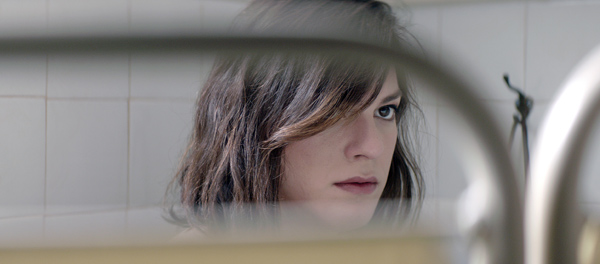With the release of Disobedience and the Oscar nomination for A Fantastic Woman (Una Mujer Fantástica) 2017, and now 2018 is indeed a special juncture in Argentinian-born Chilean helmer Sebastián Lelio‘s creative output. An incisive character study as well as an alluring exercise in style, A Fantastic Woman has the perfect feminine touch we have observed in his previous works and here, what we witness, are his fragile characters, the ups and downs of the events, the swelling of emotions and the devastating aftermath that is certifiably difficult to imagine without the presence of the mysterious Daniela Vega. There are a collection of searing moments in her performance that are made more striking with the employment of narration. A significant number of films address the question of sexuality, gender, and identity, but few of them have the power to profoundly touch us with a basic plot outline and sans propagandistic agenda. Sony Pictures Classics release the film today. Here is my sit-down with Leilo.
Sebastián Lelio
Amir Ganjavie: I was amazed by the performance of Daniela Vega. How did you find her?
Sebastián Lelio: As the idea for this film became more concrete I felt that I needed to meet some transgender women. I met Daniela while I was looking for a consultant, an advisor. I still wasn’t sure if I wanted to make the film but when I met her it was like a milestone in the process because I really loved her. She made me decide not only that I wanted to make the film but also that I was not going to make it without a transgender actor. During the scriptwriting process I was talking to Daniela on a weekly basis through Skype because I live in Berlin. We became friends and very close, and somehow her experiences were feeding the script even though it has nothing to do with her life. Somewhere in the middle of the writing process I understood that she was the one that I wanted to play Marina. When I had the first draft, I sent it to her and I asked her if she wanted to lead the film. Her presence is the key to this film because she is a transgender woman so there’s something that is unfakeable about that; it’s real. Even though she’s surrounded by quite a complex narrative machinery, Daniela and her story and her eyes and her skin and her story form a real heart beating at the centre of everything.

Ganjavie: Some directors ask their actors to show emotions that are not very common in ordinary life in order to make their performance very memorable. I’m curious to know if you were interested in such aspects of Daniela’s work because there were many moments in her performance that are striking, such as her facial expressions and the way she says her lines.
Lelio: Everything that’s in the film is a decision. I mean, what’s beautiful about Daniela is that she’s very magnetic and very mysterious and really wanted the character to remain a bit of an enigma so we can be free to project our own fantasies and desires on her. Because the film is a game of projections the secondary characters define her and we see them judging her but we also see her and we also wonder where we stand. Sometimes she just looks directly at the lens, kind of asking “What do you see?”
Ganjavie: I particularly like the feminine touch in your world and your representation of women; it’s very interesting. As the main filmmaker, how did you try to create the feminine environment? Was it through conversation with the female actor?
Lelio: I don’t know. I guess that I’m genuinely interested in them and I want to look at them. I want to observe them and I want to examine them and then celebrate them and then see them fall and then see them standing up again. There’s something fascinating about that. And like any desire, it’s a bit forced to intellectualize it. First of all, it’s love and then femininity is fragilized and cornered in the world and should be observed and should be taken care of and all those things that one can say. But first of all, it’s following an intuition.
Ganjavie: There are a significant number of movies that address the question of sexuality, gender, and identity but some of them don’t seem to have touching narratives or stories. However, this movie has a very interesting story. It’s not like a propaganda movie. That’s the quality that first came to my mind, but I totally buy the story. Can you say a little bit about the narrative?
Lelio: Well, the thing is that in Spanish we use the same word for “gender” and for “genre.” Narrative genre and sexual gender are both called “género” and we say “transgénero” to mean transgender. What I wanted to make was a “trans-genre” film so the film itself is trans. The film is just three letters, a romantic movie, it’s a comedy, it’s a Buster Keaton film, and then suddenly it’s a Busby Berkeley film, and then it becomes a ghost movie, and then it’s like, of course, the portrait of a woman, it’s a funeral film. It’s a film that, narratively, its sole identity is oscillating. It doesn’t want to be reduced and defined in one gesture. The film is, so to say, against labels and is trying to be as complex and as free as Daniela’s character. In a certain way, the character pushed the film further, and the character pushed the film further. The character was making the film more complex and the complexity of the film was asking more of the character so that’s how the writing process worked and that’s how I ended up with this idea of a multi-genre film.

Ganjavie: I want to know about the cinematic inspiration for this film. When I think about the movie, it reminds me about questions of identity such as Hitchocok asks in Vertigo. The performance in its levity also reminds a little bit of Cassavetes. Can you say something about the source of your inspiration?
Lelio: Of course. When you are making a film about a woman, you can’t escape Hitchcock or Cassavetes. There is a certain humble salutation to Hitchcock in the film. Of course, I also love Cassavetes and Gena Rowlands has always been a huge inspiration. The way that he shot females doing things like walking in the rain was an inspiration for this film. Buster Keaton inspired the wind sequence and Busby Berkeley inspired the cloud sequence when she flies towards the camera. It’s really a huge combination of different things if we are talking about the film because there are other sources of inspiration. Tone is everything so the question is how to find a certain levity even though you’re talking about heavy subjects.

Ganjavie: There are some scenes, which are especially striking, such as the scene in which they ask the main actress to undress so that they can see if there was any sexual assault involved. Did you do a lot of research about this subject?
Lelio: Oh yeah, I mean, that’s why we had advisors. We talked with several transgender women. Of course, we did a certain level of research to write the story but again I wanted to run away from social realism because the correct way of making this film would have been handheld with raw light because she’s a transgender woman so it should have been filmed in a rough way. Then I thought no, we want to make a flamboyant film, like a film that is almost chic and with an aesthetic splendor that is almost classical. But then within that, like a Trojan horse, there will come something that is completely non-classical, which is the character, which is Daniela, which is Marina, which is this heroine that is beyond modern, so to speak.
Ganjavie: There is a father, Orlando, who was in love with this transgender woman but the family was all against him, so I’m just curious if you can say something about the dynamics in this family. Why is the father totally open and the other members of his family seem to be very hostile?
Lelio: Well, I guess they just didn’t approve of the fact that he fell in love with this woman. They just preferred to step back. In the last year there was this distance between them and that’s how things were when he died. Maybe in the future things would have been better but that’s not the film. The film observes the moment when things were like that. I mean, the family was distanced when he was living this romance a bit after becoming like a pariah in his own family. What is interesting about Orlando, the man, is that he represents a very brave kind of masculinity. It’s like a flexible, brave masculinity, which is unusual.
Ganjavie: There is also the fact that the narrative emphasizes the love between these two and a family who cannot approve of it. There is no mention, for example, of social problems. You’re totally immersed in the individual’s struggles with the surroundings and the environment.
Lelio: Right, because there are all of these things about some people or relationships being viewed as less legitimate, which is what we’re dealing with today as a society. Who has the right to declare that a person is inferior or doesn’t deserve to be here, to come here, to work here, to love that person? We’re going through a crisis of empathy so I guess that’s why the film resonates intimately with today’s world. It also seems like the whole world is going through another crisis, which asks what are the limits of our loyalty? Is it to our families, is it our nations, is it our race, is it our gender? Are we different or are we one? If we are different then how do we deal with that?
Ganjavie: One cannot neglect the beautiful score in the movie, which is by the British composer Matthew Herbert.
Lelio: I’ve loved his music since I was a teenager and then when I was finishing this film I needed a score and I needed someone like Matthew Herbert for this. And then I suddenly said, why not ask him?
Ganjavie: So the score is originally created?
Lelio: Yes, it’s original. All of the scores are original, of course. And we said, okay, this is going to be like Henry Mancini meets Bernard Hermann. That was kind of the challenge, so the mystery, the tension of the Hermann-esque touch, plus the flamboyance, the excess of Mancini.
Ganjavie: What did you tell him when you sent him the final cut?
Lelio: No, not the final cut. He saw an early cut but he loved it and said, “I’m in.” It was wonderful to work with him. We recorded the score. We wrote it, and it was a dream to do that. Then he made a score for my next film, too.


